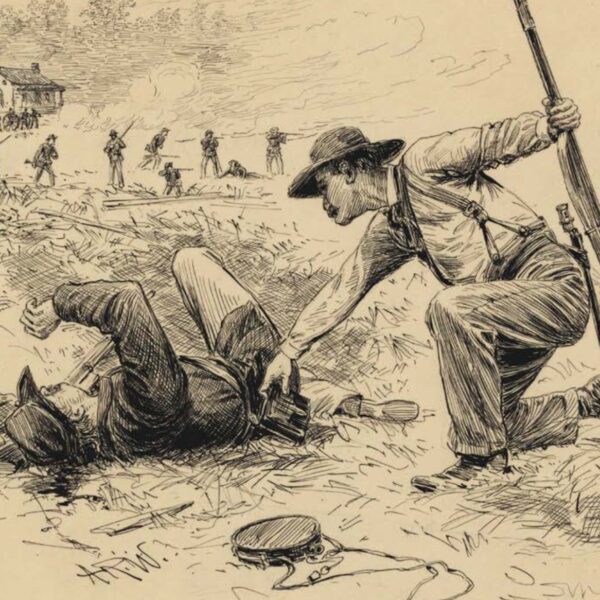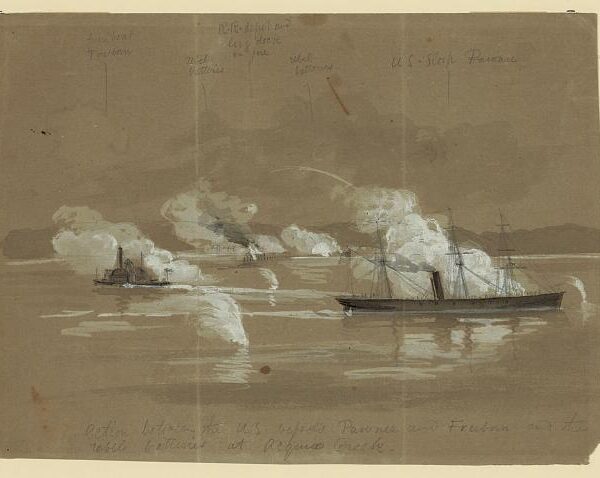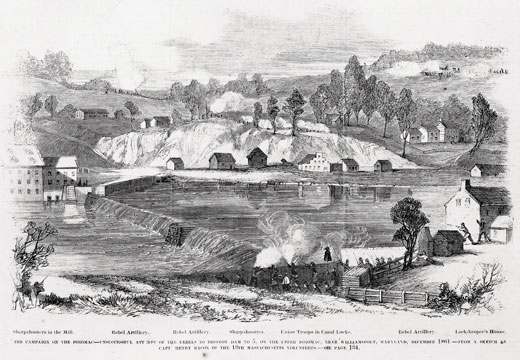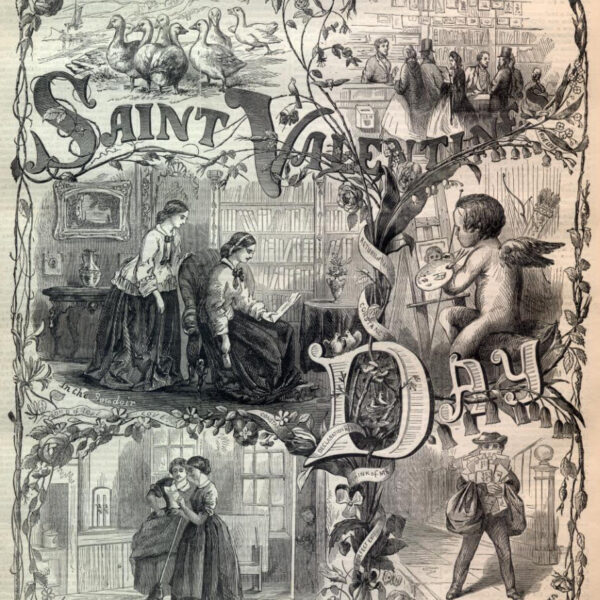The Books & Authors section of our Winter 2023 issue contains our annual roundup of the year’s best Civil War titles. As usual, we’ve enlisted a handful of Civil War historians, avid readers all, and asked them to pick their two favorite books published in 2023. Below are their selections.
We also gave them a chance to name an additional title or two that they’re looking forward to, books either released this year or coming out in print soon. You can find those picks in the issue.
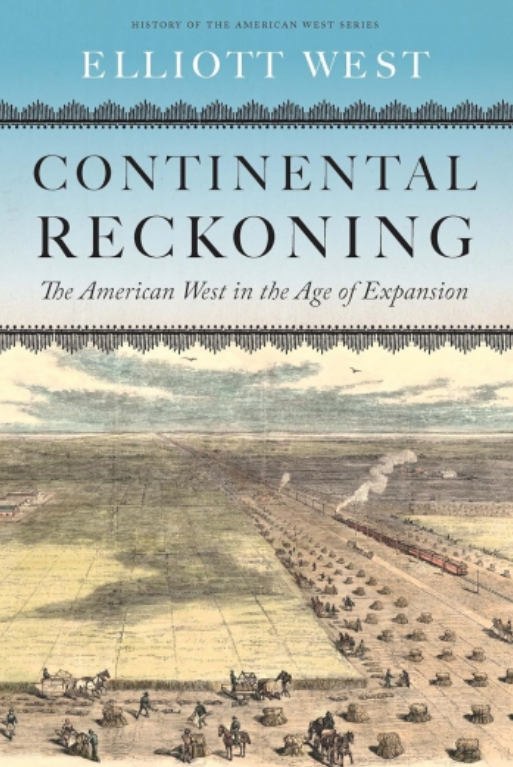
Cecily Zander
Top Pick: It is not often that a book promises to redefine what it means to study the history of the Civil War era. Master historical craftsman Elliott West has produced one in Continental Reckoning: The American West in the Age of Expansion (University of Nebraska Press). Readers will note that the Civil War is not in the title. On its surface, West’s book appears to be concerned with events and ideas far removed from the bitter struggle that divided North and South from 1861 to 1865. But West argues compellingly that the Civil War was the very “Continental Reckoning” of the title—an event that determined not only whether the Union would survive, but also what its survival might mean for the vast territories that stretched from the Great Plains, across the Rocky Mountains, and on to the Pacific Coast. West acknowledges that the war was decided, as a military issue, where historians have traditionally focused their attention: Virginia and its surrounding states. But Continental Reckoning makes a forceful case that Americans in the Civil War era used the political, social, and economic upheaval wrought by the war to organize the nation’s western states and territories and prepare them for inclusion in the new, postwar Union. For that reason, West’s work portends a paradigm shift in our study of the conflict, making it a perhaps surprising, but certainly deserving, choice for the best Civil War book of 2023.
Honorable Mention: Stephen Kantrowitz’s Citizens of a Stolen Land: A Ho-Chunk History of the Nineteenth-Century United States is the latest excellent entry in the University of North Carolina Press’ series of Steven and Janice Brose Lectures in the Civil War Era. It is well known that the former Confederate states had to rewrite their constitutions to achieve readmission to the Union after the Civil War, but the passage of the 13th, 14th, and 15th amendments also forced many northern states to reform their governing documents. Kantrowitz reveals that in Wisconsin this created an opportunity for members of the Ho-Chunk Nation to gain citizens’ rights to own land and vote—at a time when most Native Americans suffered from severe proscription of them. As historians seek to better understand the Civil War’s wide-ranging consequences, Kantrowitz provides a model for understanding how the war challenged and changed ideas about race and citizenship—and how marginalized groups used the conflict to assert their rights as Americans.
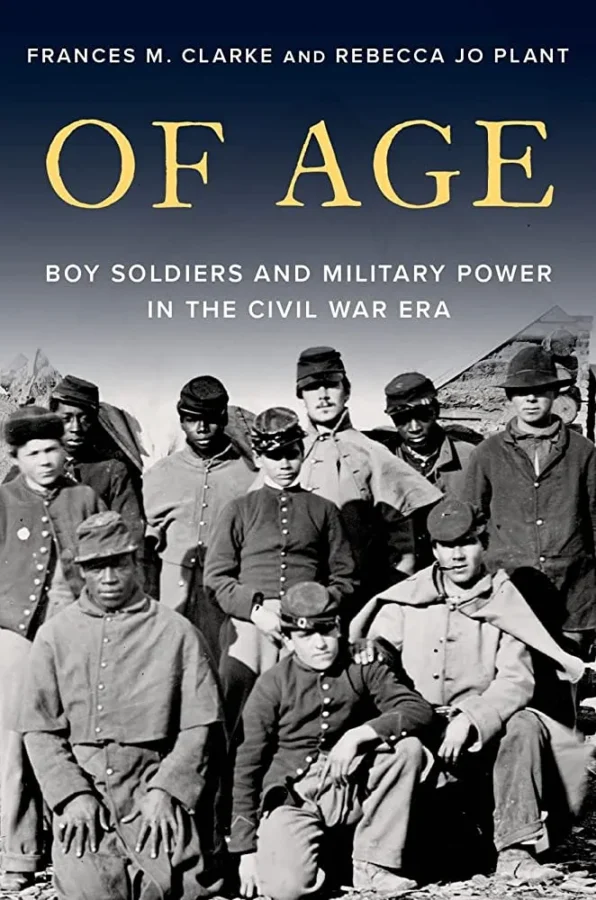
Gerald J. Prokopowicz
Top Pick: Judging by its title, Of Age: Boy Soldiers and Military Power in the Civil War Era (Oxford University Press), by Frances M. Clarke and Rebecca Jo Plant, might not seem especially promising. After a few stories about drummer boys and the VMI cadets at New Market, what else could there be to say about underage Civil War soldiers? The answer is, a lot. This book bursts with surprising revelations and sophisticated analysis. For starters, the authors demonstrate that approximately 10% of those who served in Federal armies were under the age of 18 when they enlisted, far more than the canonical 1.6% reported by historian Bell Wiley 70 years ago. The percentage of Confederates who were underage, contrary to accepted wisdom, was considerably smaller. Why wouldn’t the manpower-poor Confederacy draw upon its teenagers? Clarke and Plant use the iconography of drummer boys (popular in the North, almost absent in the South) to suggest that the regions’ contrasting conceptions of childhood were ultimately reflected in their enlistment policies. Deftly moving between cultural and legal history, in another section the authors argue that Abraham Lincoln’s suspension of habeas corpus was motivated less by the desire to suppress dissent than by the need to stop parents from their widespread use of the writ to pull their underage sons out of the army. Original ideas like that make this the most eye-opening book of the year.
Honorable Mention: I Dread the Thought of the Place: The Battle of Antietam and the End of the Maryland Campaign (Johns Hopkins University Press), the long-awaited second volume of D. Scott Hartwig’s magnum opus, does not disappoint. Where some micro-tactical battle books wallow in repetitive detail for detail’s sake, Hartwig has skillfully organized his chapters and chosen his vignettes to help the reader see the larger picture as well as the soldier’s-eye view. Like a good battlefield guide speaking to a mixed audience of buffs and beginners, Hartwig interjects useful asides to explain things such as how regimental formations worked. He analyzes the actions of generals on both sides but largely avoids the presentist Monday-morning quarterbacking too often found in traditional military history. Most of all, he never loses sight of the humanity of the people he is writing about. Not everyone wants to read 900 pages of tactical history, but for those who do, this is a model for its genre.
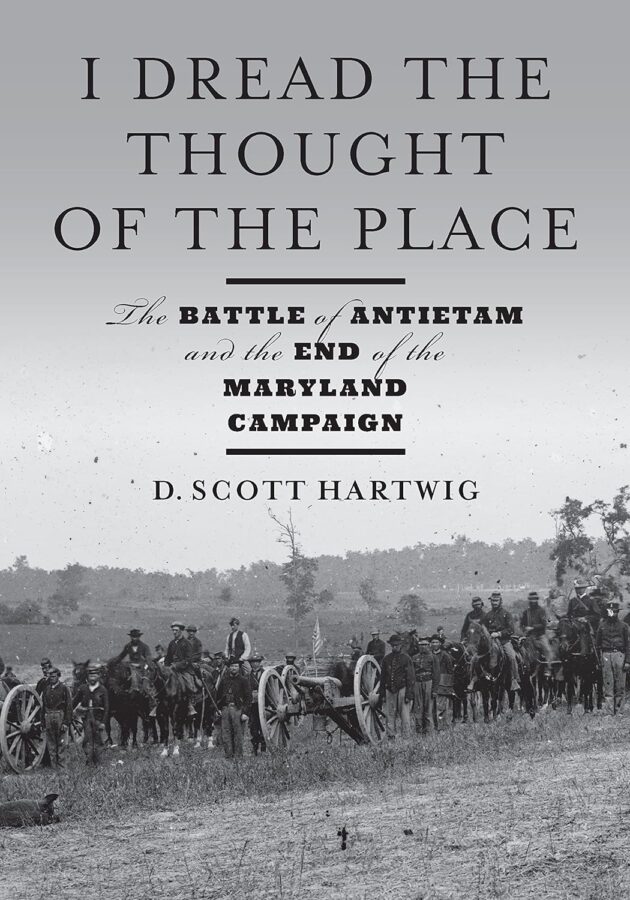
Brian Matthew Jordan
Top Pick: D. Scott Hartwig’s I Dread the Thought of the Place: The Battle of Antietam and the End of the Maryland Campaign is a monumental achievement that caps decades of diligent research and writing by one of our most talented historians. With this hefty tome (extending nearly 1,000 densely lined pages, it tipped my bathroom scale at 4.5 pounds), Hartwig provides the long-awaited sequel to his no less massive To Antietam Creek: The Maryland Campaign of September 1862 (2012), which tracked Robert E. Lee’s first gambit north of the Potomac River through September 16, 1862. The length of this book suggests more than its author’s formidable research (the bibliography, made available on the publisher’s website, extends to 55 pages). “To understand Antietam,” Hartwig writes, “it is necessary to venture into the woods, to walk through the corn rows, and see the battle as it was.” By wading into the “weeds,” the author renders an unfailingly human narrative of the battle, fully alive to combat’s effects on bodies, minds, and souls. In carefully crafted prose, he brings us closer than perhaps any previous Civil War battle study has to the ugly realities of combat. To be sure, Hartwig’s account is hardly devoid of the larger social and political contexts; individual chapters consider emancipation, civilians, and the battle’s gruesome aftermath. Still, he makes clear that the words and deeds of ordinary soldiers on September 17, 1862, matter in their own right. “Antietam,” Hartwig writes, “needs no hyperbole.”
Honorable Mention: Kidada E. Williams demonstrates how historians can breathe new life into old evidence with I Saw Death Coming: A History of Terror and Survival in the War against Reconstruction (Bloomsbury Publishing). Many scholars have mined the 13 volumes of testimony presented during Congress’ Reconstruction-era investigation into the Ku Klux Klan, as well as the interviews conducted with formerly enslaved persons by the Works Progress Administration in the 1930s. But Williams approaches this evidence anew—“really listening,” she writes, and “accord[ing] victims authority over their own stories.” The result is a powerful book that renders a tale of Reconstruction for our own time. Beyond any cavil, Williams demonstrates how the war went on.
Jennifer M. Murray
Top Pick: Without question, the best Civil War book published in 2023 is D. Scott Hartwig’s I Dread the Thought of the Place. The volume’s predecessor, To Antietam Creek, published a decade ago, offers an exceptionally detailed study of the two weeks of operations leading to the Battle of Antietam. This second volume, topping 900 pages, proved well worth the wait. Every phase of the battle on September 17, 1862, is studied in meticulous detail, while the closing chapters explore the civilian experience, Robert E. Lee’s movement back into Virginia, the fight at Shepherdstown, the situation of George McClellan and the Army of the Potomac, and the impact of the Emancipation Proclamation.
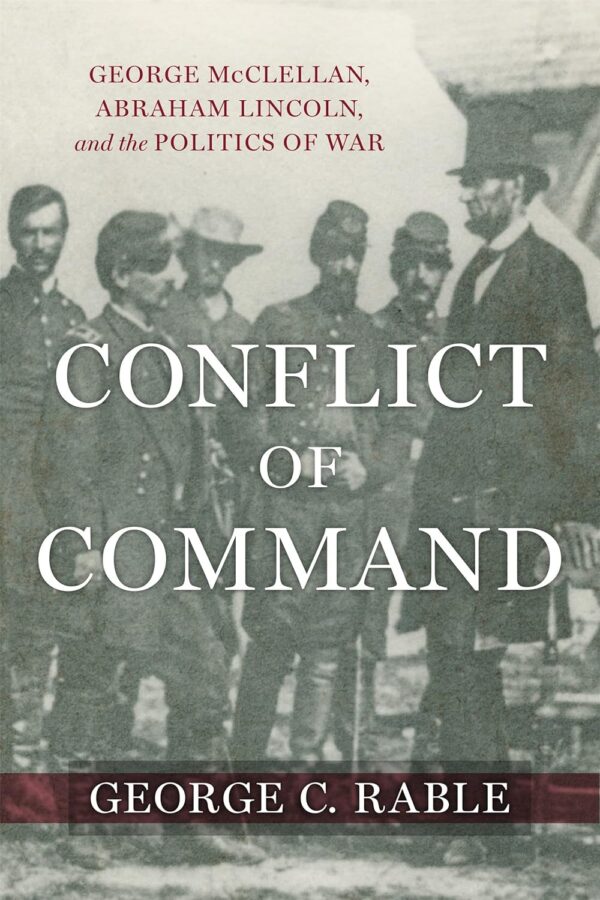 Few people are better positioned to untangle the complexities of the Battle of Antietam with as much clarity, specificity, and diligence than Hartwig. With 34 years of experience working for the National Park Service at Gettysburg National Military Park, he possesses a singularly unique ability to narrate the intricacies of Civil War battles. Drawing on an abundance of published and unpublished sources, Hartwig successfully conveys the tactical minutia of the fight at Antietam and skillfully captures the experiences of Federal and Confederate soldiers. Readers will also appreciate the judicious evaluation of the command decisions by the officers in the Army of the Potomac and the Army of Northern Virginia.
Few people are better positioned to untangle the complexities of the Battle of Antietam with as much clarity, specificity, and diligence than Hartwig. With 34 years of experience working for the National Park Service at Gettysburg National Military Park, he possesses a singularly unique ability to narrate the intricacies of Civil War battles. Drawing on an abundance of published and unpublished sources, Hartwig successfully conveys the tactical minutia of the fight at Antietam and skillfully captures the experiences of Federal and Confederate soldiers. Readers will also appreciate the judicious evaluation of the command decisions by the officers in the Army of the Potomac and the Army of Northern Virginia.
I Dread the Thought of the Place is not only the best Civil War book published in 2023, but is destined to stand as the definitive, magisterial study on the Maryland Campaign and one of the best battle studies ever produced.
Honorable Mention: McClellan has long served as a popular punching bag for Civil War historians and enthusiasts. The vast amount of scholarship devoted to him, the dysfunction in the high ranks of the Army of the Potomac, and the civil-military dynamics of the Lincoln administration invite the critique: Is there anything new to say about the Lincoln-McClellan relationship? George Rable believes so. In Conflict of Command, Rable encourages us to approach McClellan with objectivity and seeks to provide a fresh and balanced interpretation of one of the most important—and flawed—relationships of the American Civil War. Rable’s work offers an exciting narrative of the interplay between Lincoln and McClellan, the political fissures within the Army of the Potomac, and the fragility of a democracy at war.
Kevin M. Levin
Top Pick: It’s not every day that a new study of the Civil War can be labeled “groundbreaking,” but in the case of Frances M. Clarke and Rebecca Jo Plant’s Of Age: Boy Soldiers and Military Power in the Civil War Era, the label is appropriate. Of Age challenges much of what we have long believed about underage soldiers who served in the Union and Confederate armies. Our understanding of these young soldiers is shrouded in stories of boys coming of age in the midst of war, facing the challenges of camp life and the enemy on countless battlefields, only to be cut down even before their prime.
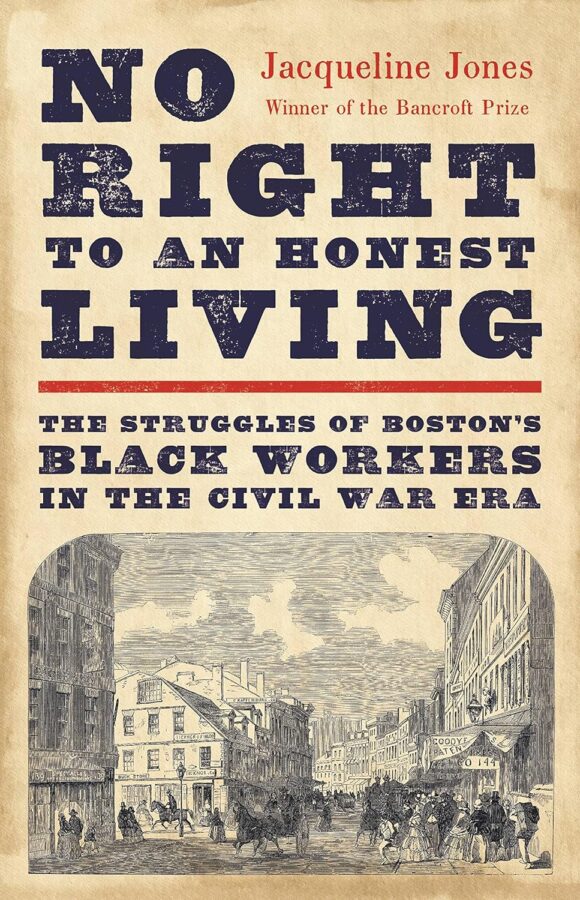 While historians have long maintained that a relatively small number of underage men served, Clarke and Plant conclude that they made up about 10%—roughly 180,000 on the Union side and 20,000 on the Confederate side—of the armies’ volunteers beginning in 1861. Their service, the authors argue, “represented the final stage of a process of politicization and militarization that had begun months if not years before.”
While historians have long maintained that a relatively small number of underage men served, Clarke and Plant conclude that they made up about 10%—roughly 180,000 on the Union side and 20,000 on the Confederate side—of the armies’ volunteers beginning in 1861. Their service, the authors argue, “represented the final stage of a process of politicization and militarization that had begun months if not years before.”
The most interesting and arguably the most important chapters in this deeply researched study center on the conflicts between parents and the federal government over children who enlisted without parental consent. Even with the disparity between the populations of the United States and the Confederacy, it was the former that went furthest in resisting the attempts of parents, often through the use of habeas corpus petitions, to win the discharge of their underage children. That conflict was just one of the war’s underlying struggles over the centralization of legal and military power.
Of Age does more than shed light on the experiences of boy soldiers during the Civil War. It demonstrates how the war challenged deep-rooted assumptions about the innocence of youth, military service, the reach of federal power, and the impact of violence on society. This book is a must read.
Honorable Mention: The memory of Civil War-era Boston is dominated by stories of black and white abolitionists and the eventual organization of the 54th Massachusetts Infantry in 1863. But in No Right To An Honest Living: The Struggles of Boston’s Black Workers in the Civil War Era (Basic Books), historian Jacqueline Jones explores the struggles of the city’s laboring class. Before the war black Bostonians campaigned to desegregate schools and streetcars in addition to calling for the end of slavery. Jones does an excellent job of highlighting the limits of white abolitionist and Brahmin support for improved conditions of the city’s black workforce. In doing so, she anticipates some of the challenges faced in convincing a sufficient number of Boston’s military-age black men to enlist in 1863. By extending the story into the postwar years, Jones demonstrates how military service translated into continued calls for the full rights of citizenship in Massachusetts and throughout the nation.
BEST BOOKS 2023 CONTRIBUTORS
Cecily N. Zander is an assistant professor of history at Texas Woman’s University in Denton, Texas. Her first book, The Army Under Fire: Antimilitarism in the Civil War Era, will be published by Louisiana State University Press in 2024. She received her doctorate from Penn State in 2021 and lives in Dallas with her border collie, Moe.
Gerald J. Prokopowicz is a professor of history at East Carolina University in Greenville, North Carolina, and host of the podcast “Civil War Talk Radio.”
Brian Matthew Jordan is associate professor and chair of the history department at Sam Houston State University in Huntsville, Texas. He is the author or editor of six books, including Marching Home: Union Veterans and Their Unending Civil War (a finalist for the Pulitzer Prize in 2016) and, co-edited with Jonathan W. White, Final Resting Places: Reflections on the Meaning of Civil War Graves (2023). He is at work on a one-volume history of the war for Liveright/W.W. Norton.
Jennifer M. Murray is a military historian with a specialization in the Civil War in the history department at Oklahoma State University in Stillwater, Oklahoma. She is the author of On A Great Battlefield: The Making, Management, and Memory of Gettysburg National Military Park, 1933–2023 (2014), published as a second edition with a new preface in 2023. Murray is currently writing a full-length biography of George Meade, tentatively titled Meade at War.
Kevin M. Levin is a writer and educator based in Boston. He is the author of Searching for Black Confederates: The Civil War’s Most Persistent Myth (2019) and is at work on a biography of Robert Gould Shaw for the University of North Carolina Press. He writes on Substack at kevinmlevin.substack.com.

